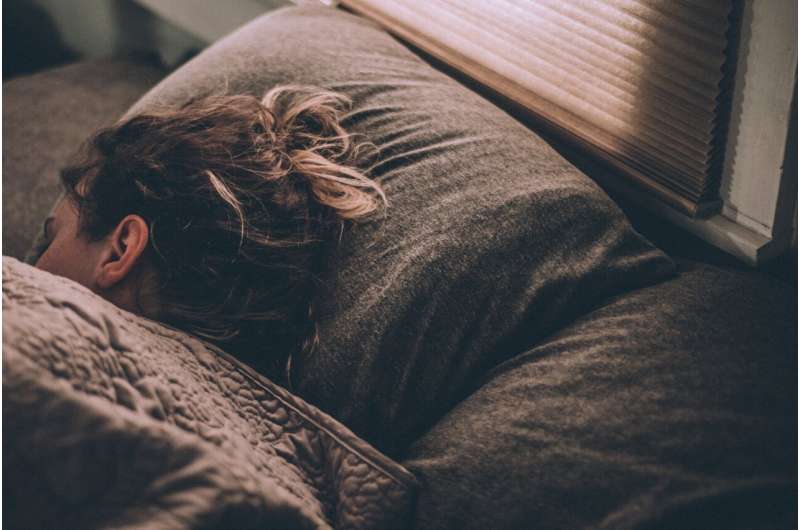This article has been reviewed according to Science X's editorial process and policies. Editors have highlighted the following attributes while ensuring the content's credibility:
fact-checked
peer-reviewed publication
trusted source
proofread
Sleep moderates the link between bullying and suicide in teens

A new study to be presented at the SLEEP 2024 annual meeting found that sleep duration significantly moderates the association between bullying and suicide attempts among adolescents in the U.S. The research abstract was also published in an online supplement of the journal Sleep.
The study revealed that 15% of adolescents reported they were bullied at school, and 16% were bullied electronically; 10.2% reported they had attempted suicide during the past year; and 77.3% did not adhere to sleep duration recommendations.
Adolescents who reported four hours of sleep or less per night were two times as likely to attempt suicide, and sleep duration significantly moderated the association between bullying in school and suicide attempts.
"Adolescent suicide and suicide attempts constitute a serious public health crisis in the United States," said lead author Marie-Rachelle Narcisse, who has a doctorate in public health and is an assistant professor in the Warren Alpert School of Medicine of Brown University and a research scientist at the E.P. Bradley Hospital COBRE Center for Sleep and Circadian Rhythms in Child and Adolescent Mental Health in Providence, Rhode Island.
"The fact that sleep duration significantly modifies the association between bullying and suicide attempts is a remarkable finding."
According to the Centers for Disease Control and Prevention, suicide is the second-leading cause of death among teens between 14 and 18 years of age. The American Academy of Sleep Medicine recommends that teens should sleep eight to 10 hours on a regular basis to promote optimal health. Insufficient sleep in teenagers is associated with increased risk of self-harm, suicidal thoughts, and suicide attempts.
The study involved an analysis of data from the 2021 Youth Risk Behavior Surveillance System, comprising a nationally representative sample of 17,134 participants. The researchers analyzed the relationships among electronic or school bullying, sleep duration, and past-year suicide attempts among adolescents between 12 and 18 years of age. Results were adjusted for potential confounders including sex, age, race/ethnicity, screen time, and poor mental health.
Adolescents who were bullied in school or electronically were three times as likely to attempt suicide compared with those who were not bullied. Those reporting no bullying showed a reduced likelihood of suicide attempts as sleep duration increased to seven hours, and the likelihood remained constant with more hours of sleep.
According to Narcisse, the results emphasize that sleep duration is an important target for interventions to reduce suicide in teens.
"If improved sleep duration can inhibit the adverse effect of bullying on suicide attempts, then interventions aimed at improving sleep duration could potentially have a positive influence on lowering suicide risk among adolescents," said Narcisse.
More information: Marie-Rachelle Narcisse et al, 0813 Sleep Duration Moderates the Association Between Bullying and Suicide Attempts Among U.S. Adolescents, SLEEP (2024). DOI: 10.1093/sleep/zsae067.0813



















